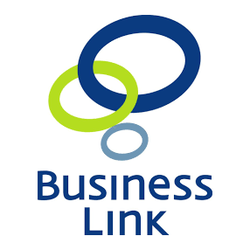Business Link was a government-funded service in the United Kingdom established in 1993 to provide personalized business support to small and medium-sized enterprises (SMEs). It aimed to act as a conduit for businesses seeking advice on a variety of topics, ranging from startup assistance to expanding operations. Business Link was designed to be a one-stop information hub, offering guidance on matters like business planning, finance, marketing, and regulatory compliance.
The primary objective of Business Link was to foster business growth and improvement by offering tailored advice and support. It operated through a network of regional offices, which delivered direct support and guidance. These regional offices were supported by an online portal, providing resources that could be accessed by businesses around the clock. Business owners and managers could benefit from a wide range of services, including workshops, one-on-one consultations, and access to a wealth of online resources.
One significant aspect of Business Link's initiative was helping businesses understand and access grants and funding options available to them. Although Business Link itself did not provide grants or funding directly, it played a crucial role in guiding businesses to appropriate sources of external funding. This was especially important for SMEs with limited resources and knowledge about where to seek financial support.
Business Link provided advice on various forms of funding such as government grants, venture capital, loans, and angel investment. Government grants and funds for businesses in the UK were particularly vibrant, offering substantial opportunities for startups and existing businesses seeking growth. These grants often targeted specific industries, regions, or objectives such as innovation, sustainability, or export activities. Business Link advisors could help businesses navigate the complexities of these funding options, ensuring that they identified suitable opportunities and understood the criteria and application processes.
While many grants targeted businesses exclusively, there were also funding opportunities available for non-profits. These were typically aimed at organizations with a social, environmental, or community-focused mission. Business Link could advise non-profits on accessing grants that would support their operations or projects, enhancing their ability to deliver impactful services.
Over time, Business Link's role evolved, particularly with the increasing importance of digital tools and resources for business advisory services. The rise of online platforms led to a shift in how business support was delivered, with the internet providing vast information resources and facilitating easy access to a global network of advisors. In November 2011, the advisory arm of Business Link was largely replaced by the online service GOV.UK, which serves as the central portal for accessing government services and information. The new structure emphasized digital over face-to-face advisory services, reflecting broader technological and cultural shifts.
In summation, Business Link played a pivotal role in the business landscape by acting as a bridge to essential resources, including grants and funding assistance. Though it no longer operates under its original auspices, the legacy of its model and approach to business support continue to inform the structures in place today. As businesses and non-profits navigate the complexities of modern financial support landscapes, they benefit from the foundational work done by Business Link in demystifying and simplifying access to crucial funding resources.
View organization websiteList of grants and funding offered by Business Link




